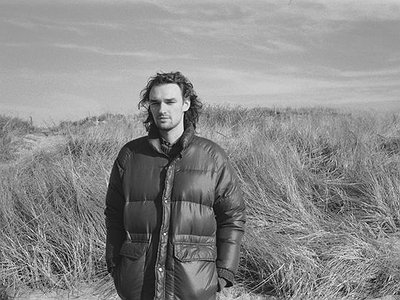Go with the flow
Thanks to developments in the realm of software, DJing, playing live and producing have moved closer together than ever before, allowing DJs to change a track down to the tiniest detail. In which way are you making use of these possibilities in your sets and in which way, do you feel, does the music benefit from them? Do you feel a crowd is actually able to appreciate the intricacies of complex DJing, if they don't actually know what, precisely, is happening behind the decks?
While I think the ability to modify tracks down to the smallest detail is quite a blessing, I do not think that that alone really constitutes complex DJing and perhaps may be quite the opposite. Of course it's amazing to be able to edit and extend a track for as long as you'd like, or to cut out portions that are annoying or tacky, but I think it's also important to consider why the original creator of the song chose to let certain sequences play for as long or as short of periods as they did in the finished version. Someone who finds creative ways to work within the confines of an already physical medium like vinyl or tape and manipulate that in a live setting (i.e. Terrence Parker or Jeff Mills) is much more interesting to watch than a DJ that chooses to make extended edits of their favourite tracks, removing the breakdowns and creating ten minute linear edits which play back to back for hours as exhausting bricks of sound.
The relationship with the audience is crucial for a DJ, and yet it seems to be a fragile one. How do you see the balance between giving the crowd what they want and treating them to something new?
It's important to convey your specific message as a musician or DJ, but I don't think it's very nice to subject an audience to hours of something that you can visibly see they aren't interested in. Especially with DJing, I think it is a delicate balance of giving people what they want, winning their trust, and occasionally introducing them to some music that they didn't know they would like.
Could you try to describe what makes you decide to play a particular record during one of your sets? What makes a strong transition from one track to the next from your point of view, for example, and how do you see the relative importance of establishing a flow versus creating tension through suspenseful breaks in continuity?
As I mentioned earlier, I try to choose records instinctually based on what I would like to hear, something that seems like it would sustain the particular flow of the set or that would castrate the flow immediately, depending on what feels right in that moment. I think that establishing a flow as well as creating suspenseful moments and abrupt movements are equally valuable.
DJs that just press play on their laptop may have given technology a bad name, but without technology, there'd be no DJing in the first place. What's your perspective on the relationship and the balance between technological advances, music and the art of DJing? In which way have particular technologies perhaps concretely changed your style of DJing? Do you believe in the idea of progress in DJing?
I personally have nothing against technology and feel no certain affinity or allegiance to any type of DJing, digital or otherwise. I think that all technological advances are exciting and offer new opportunities to develop or reject new methods of working and thinking. I absolutely believe in the idea of progress in regard to any creative endeavour. There will always be new avenues to explore, new loopholes to exploit, and traditions to reinterpret.
People are often speaking about the demise of the club scene, but the experience has remained as potent as ever. Why, do you feel, has the club remained such a great place for the discovery and appreciation of electronic music? How do you see the relationship between music and the space it is performed at?
I don't necessarily agree that the club experience has remained as potent as ever. In fact, I think there is plenty of room for reconsideration of when and where electronic music can be heard and experienced. I think that the time and place in which music is experienced and performed drastically impacts the experience for the listener and performer. I would very much like to work towards discovering new places and situations to experience electronic music which seems in many ways, stuck in a tired infinity loop of club nights, in my opinion.
In how much, do you feel, is the club experience shaped by cultural differences? Do you, when travelling, take these cultural differences into consideration – and in how far has your approach as a DJ perhaps even benefited from playing in different countries and in front of different crowds?
It has been my experience that different cities but more so just crowds, can react very differently to the same track, but I think it's also very important not to alter too much of what you are doing depending on the geographical location. I think it is important to remember that, for the most part, people are there to experience your unique take on music.
Please recommend two DJs to our readers which you feel deserve their attention.
I can wholeheartedly recommend Lawrence and Roman Fluegel, who are not only two of the most talented and passionate DJs that I've seen, but also two of the most modest and kind-hearted people that I've had the privilege of getting to know.





